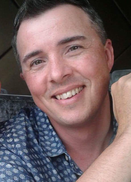| Welcome back to Flipping the Focus. Introduction In the last post, you read about and engaged with a "Values-Causal Model" of learning--either with your teaching partner(s) and/or with a group of colleagues through embedded, professional learning. I hope that you were able to derive insights from your experiences and that you are inspired to influence others through your instructional leadership. |
A) Framing Our Learning
The true value, I believe, in this type of thinking is what occurs when we are challenged with negotiating meaning and next steps alongside others--the importance, here, is alongside. Alongside, as Susan Scott might say, is to walk with or beside another. Walking with, metaphorically, is akin to taking an interpretive stance to listening: listening for interpretation is much different than listening for responding. The former--interpretation as listening 'to'--is a relationship-builder; the latter--responding as listening 'through'--stalls relationship-building. As an aside, I am grateful to my new colleagues, Jodi Ashton (@AshtonOCSB) and Alison Kinahan (@alkinahan1) from the Ottawa Catholic School Board for helping me to re-visit this important distinction.
For example, as we negotiate meaning alongside, our worldviews, relationships to family and friends, and cultures and traditions all come into question: all of this being done as we continuously work towards establishing and growing our individual identities and capacities. Successfully wading into this complexity builds us up, making us better people, because we come to know that we are understood and that we belong.
When you consider your relative degree of being understood and your sense of belonging to a culture representative of your views and contributions, recall that there are many people in this world who remain unseen, unheard, and are struggling to be recognized.
biases and the biases that we bring..."
| Susan Dion, Potawatomi-Lenapé scholar at York University, reminds inquiring educators that we need to "...be aware of our own biases and the biases that we bring..." This exhortation was delivered specifically during the course of professional learning about monitoring Indigenous-focused collaborative inquiries, but I would encourage us to think upon this as a critical lens to our place in teaching and learning through Indigenous Education. |
Before you continue with this post, I would like to encourage you to take a moment...perhaps, a few minutes...to reflect upon your last professional learning session, an equity-focused conversation with a colleague, or a lesson you facilitated with your students.
|
C) Building: Learning to Belong; Belonging for Learning
From the outset, I need to profess that I am not an expert on the topic of culturally-responsive pedagogy or Indigenous Education, but I am growing in examining my perspectives and actions more frequently; expanding my knowledge-base and deepening my understanding; and endeavouring to helping others--dynamic leaders, pedagogues and students, alike--navigate the tensions in their own learning journeys.
In the next part of this post, we'll digress along a parallel path, then return to the thesis of reconciliation through Indigenous education.
| Place as a Base of Learning: Recently, a colleague of mine lead our regional team through a reflective exercise. The exercise was to think back to one of our earliest memories. Take a moment, right now, to think back to one of your earliest memories. You might find it helpful to close your eyes or to change your field of view as you do. |
Now, what came to mind?
Your memory was likely to have been formed with or without others being present, but I'm willing to bet that it was formed outdoors. As we know, we remember that which resonates deeply with us--that is, on an emotional level. Outdoor experiences tend to engage our senses in such a way that we form and retain these memories more so than those that were not affectively influenced.
For those in education, what's the significance of memories derived in natural environments?
| We can read in the Ontario Kindergarten Program Document (p34; 2016) that children's well-being--mental, physical, emotional, and spiritual--is well-supported by connecting to the natural world. Acknowledging the Land: Having grown up in rural, Eastern Ontario, I have many fond memories and agrarian lessons tied to my family, community, and to the land. Notice the weight that I have personally assigned to the connection between place/land and early sense of self and a sense of belonging. Even to this day, I continue to identify with where I began. |
And when you think upon the lives of Indigenous people who have come before and for those who continue to struggle to building up their sense of self and belonging (there are many examples current to our news--across Canada), you begin to wonder about your part in its history, and important to moving forward, your role in helping to reconcile relationships.
I believe that the answer, in part, lies in and through Education. What we each know determines our actions. I believe that each of us needs to come to an understanding of the roles that colonialism, land treaties and residential schooling have played in shaping current realities for Indigenous Peoples. And to understand current realities means that we interrogate those realities and provoke learning for all.
Perhaps lingering in a space of understanding Truth is critical, but as mentioned, based on what we know, should that not direct our actions? Our learning must be transferred: we must move towards tackling tough challenges. This challenge is that of building up relationships. At this time, I believe we must focus on re-building relationships--i.e., focusing on Reconciliation.
Perhaps, framing our thinking, in part, through Indigenous ways of knowing will not only be of service to Reconciliation but will be important for supporting the well-being of all learners moving forward.
As a suggestion (this is new to me, as well), I would like to encourage you to take time to explore further in one of two ways (or both). With reference to the learning model presented (above), you might qualify the first way (1-Truth) as spending time in the Visioning (Seeing it), Feeling (Relating to it), and Understanding (Knowing it) domains.
As for the second way of exploration, you might then find yourself moving towards the domain of Doing (Acting on it) for 2-Reconciliation.
1-Truth:
- a) Take time to reflect on any privileges that you have enjoyed/been bestowed upon you--in each stage of your life up to now.
- Recognize that these privileges are borne from a Western perspective--not an Indigenous one.
- Begin to identify how your worldview differs from an indigenous worldview.
- Suggestion: Enrolling in UBC's MOOC, "Reconciliation Through Indigenous Education" is a great way to gain exposure to a variety of frameworks relevant to Indigenous ways of knowing. The course contains 6 units; 1 unit released each week (consecutive weeks).
- b) Examine professional resources on one or more of the following topics. These are a few with which I've spent some time:
| Regarding Land Acknowledgements, I would like to offer up my own working example, as an expression of my ongoing learning. The example was shared through a professional learning session I facilitated in the Fall of 2018. You can access this acknowledgement using the button (see right).
|
- c) Study and reflect upon these resources with others.
- What resonates with you? What connections are you making to practice?
- Important: If you can, reach out to your district's Indigenous Education Lead. Invite them to be a thought partner and/or critical friend throughout your learning. If you are able to interact with Indigenous Elders and Knowledge-Keepers, learning through story will be indispensable to how you 'see' yourselves learning and how you 'feel' or relate to others.
- d) Plan how you will incorporate your developing understanding into your leadership with others--staff, teaching partners, students.
- Be courageous. With your heart in the right place, your intentions will shine through. And if what is perceived by others/you notice in others is not in alignment to your intentions, have conversations that direct everyone to learning more, then redress the learning goal(s), continuously reviewing and tracking the criteria you're collectively setting to reaching the goal(s).
As you engaged in learning about Truth, you spent time wading through the Visioning, Feeling, and Understanding aspects of the learning model. Moving forward, I believe that we will be spending a significantly and relatively longer time in the Doing frame of the model. As time moves on--as well as our learning--we will come to spend less time in this space, as we will be growing through reconciliation and will be better able to devote ourselves to building and sustaining, strong relationships.
This is where the toughest and most challenging work lies. We're positioning ourselves to act on what we know...perhaps, what we think we know and will do. There is no road-map to navigating this tension. There are no formulas...algorithms for guaranteed success. But we do have some powerful levers to help guide us and drive our work:
- Closely examining and declaring privileges and biases;
- Inquiring collaboratively, thinking critically about the work;
- Building upon capacity, leading from the middle;
- Linking to and/or leading our inquiries from community-based, Indigenous leaders and other resources; and
- Securing internal accountability by frequenting effective monitoring practices
Getting Ready for Inquiry:
As you prepare to identify an improvement goal and subsequent challenges to practice, you might choose to align them to one or more of the following guiding questions:
- Community Engagement: How might we foster intercultural relations?
- Acknowledging the Land: How might we come to know the land we're on, acknowledge it and share the lessons learned from and through the land?
- Student Voice: How might we support students speaking to their connection to culture and land?
- How do we come to know our students? What lessons to they bring?
- How are we paying attention to their cultural backgrounds? Linguistic backgrounds?
- How do we come to know our students? What lessons to they bring?
- Place-Based Learning: How might we support innovative curricula through place-based pedagogy?
- E.g., Supporting expression of traditions; studying ecological principles
- Story-Telling: How might we make meaning through story?
- What must we observe and practice to appropriate stories for learning?
- What are the social and moral responsibilities for story-tellers and listeners?
- Cultural Competency: How might we use Indigenous frameworks for learning to guide us into examining how Indigenous values compare to our own? To those that are prevalent in our school(s)?
As you consolidate your learning, make sure that your team reaches out to an Indigenous Education Lead and have them work with you. You'll be bringing together the confluence of ideas and actions you've taken to creating a cohesive and coherent whole. The wholeness of your learning will vary based on your goals (which are evidence-informed), anticipated outcomes (these actions taken that are innovative and flow from research) and the gap between what you've intended and what has been truly been achieved (these gaps revealed by an analysis of the documentation you've collected, analyzed and interpreted).
| GOAL: "Framing our thinking, in part, through Indigenous ways of knowing will not only be of service to Reconciliation but will be important for supporting the well-being of all learners moving forward." |
Next Best Move(s):
Throughout this post, you may have found yourself deriving new insights, anchoring into an ongoing inquiry, and/or reflecting upon some centrally-led, professional learning. Based on these experiences, what are you planning as a next, best move for continuous improvement? How will your actions leave others in a better place than they were before?
As I mentioned above, I am inspired to reach out to those whose learning resulted in the Indigenous Learning Model (featured, above). One of my next, best moves is to learn through their narratives...through story-telling. Story-telling in Indigenous culture is an inter-generational tool. According to University of British Columbia (UBC) Professor, Jan Hare (Course: Reconciliation Through Indigenous Education), stories can convey knowledge, history, practices, beliefs, and values. Stories can explain things for us and help us make sense of the world. Interestingly, history from an Indigenous perspective, is non-linear--in fact, history is described as spiralling...its events fluid and connected. Given the dynamic nature of events, I believe this implies that stories are fluid and connected over time. This truly bears witness to the enduring nature and impact of story-telling as an Indigenous way of knowing.
As you read above in "Acknowledging the Land", I am also setting my sights on learning through place and applying place-based learning in the future, in the company of those with whom I work and serve. You might find the videos I've embedded below helpful in providing you with a snapshot of its meaning and significance over time.
| | |
- Land and place are sources of knowledge; they are the basis of identity; and land is seen as 'teacher' and pedagogy.
In closing, I would like to thank you for your readership and, in advance, sharing your insights. I can't help but to think of the conversations that can be inspired when we take collective action to improving student learning.
As this blog is a means for readers to network and gradually change the context for how they teach and learn, we all benefit by drawing nearer to the perspectives shared here and shared beyond with our professional learning networks.
I am more than happy to collaborate with you and make our learning visible, here, in this blog and across Flipping the Focus' social media platforms, as well as your own.
Contact Flipping the Focus to see how we can work together towards achieving your goals.
Chris Stewart, OCT
Education Leader, Flipping the Focus, (c) 2018
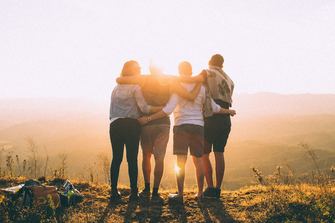

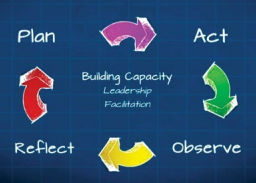
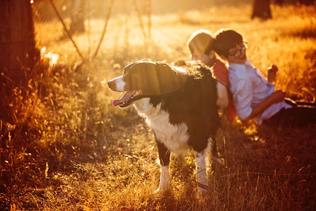
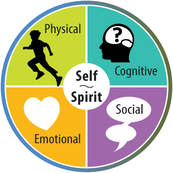
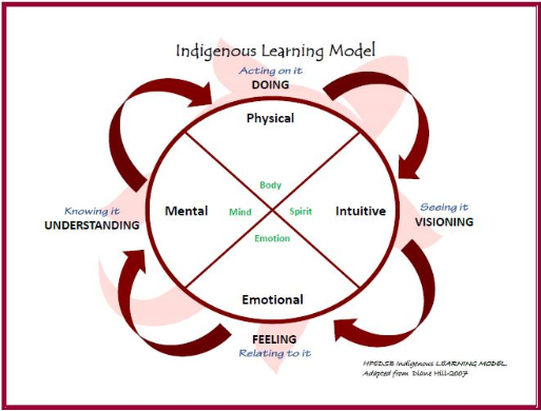

 RSS Feed
RSS Feed
